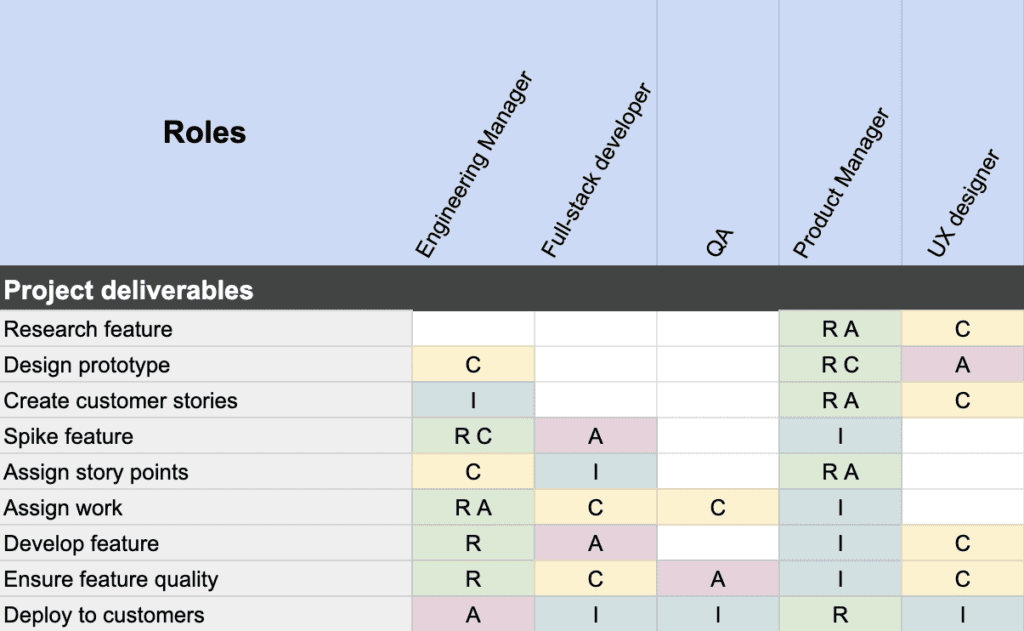There are many factors that are important when it comes to running a successful business. Here at Celayix, we always stress how important your employees are as a resource.
However, just like any other resource, you want to make sure you’re maximizing their efforts. This is in fact, a huge part of workforce management. One element of that comes in the form of accountability in the workplace.Unfortunately, accountability in the workplace can be hard to find, despite being one of the most important characteristics of high-performing teams. When people are held accountable at work, they work better. But if there’s no accountability, employees can’t reach their full potential.
What is Accountability in the workplace?

Workplace accountability refers to the scenario where all staff members accept responsibility for their actions, conduct, performance, and choices. When accountability is encouraged at work, it usually leads to more commitment, better employee morale, and improved performance. While accountability in the workplace is associated with employees, it is generally fostered and created by leadership, and company culture.
Ever heard of the Directly Responsible Individual?
The concept of a directly responsible individual was first coined by Apple as a well-known facet of accountability in the workplace. Essentially, it is based on the idea that every task (big or small) is assigned to a person who is directly responsible for it. They are held accountable for the success and failure of the projects, which reduces the likelihood of passing the buck. It also means that decision-making becomes easier and more trust is formed. There is less micromanaging and better performance. All of these factors ultimately lead to increased profitability!
Why is Accountability in the Workplace Important?
As alluded to above, accountability in the workplace is important to ensure that you get the most from your employees. Essentially, the quality of the work produced by your employees is dependent on their accountability. Consider your own career and the times you’ve done your best work. When you are given ownership over a project, you generally give it your all, right? The same goes for all employees and their own accountability.
When accountability in the workplace is poor, employees often miss deadlines, contribute mediocre work, and disregard punctuality. This can turn into larger issues such as absenteeism and disengagement. When employees are not held accountable, teams break down along with communication. Departments become siloed, projects are delayed, and productivity takes a hit. So, how can you foster accountability in the workplace?
How to Foster Accountability in the Workplace
Of course, your own company culture and process will dictate how you foster and encourage accountability. However, there are steps that most employers can take in order to foster accountability in the workplace.
1. Lead by example

As a manager or business owner, you set the bar when it comes to accountability. Your employees follow your lead and look up to you and the standards you set for the company. If you fail to own your mistakes, or consistently arrive late to meetings, you can almost guarantee that employees will follow suit. So, instead, be open and honest about mistakes, be punctual, and contribute to team tasks. As long as you consistently remind yourself that you set the bar, it will be easier for you to take your own accountability in the workplace.
2. Create an environment of trust
A very important element of accountability in the workplace is trust between management and the workforce. When there is a lack of trust, there is often an element of fear. Your employees are less likely to hold themselves accountable if they fear management. If your employees fear punishment when making mistakes, they will never own up to them and take ownership or responsibility. Admitting to and owning your mistakes is a key factor of accountability in the workplace.
The key here is to avoid punishment when employees make mistakes. Instead, show them how to right their wrongs and simply encourage them to hold themselves accountable for their work. Create open and transparent lines of communication and create a safe space for your employees to admit their mistakes.
3. Set team goals
In order to foster any sense of accountability in the workplace, it’s important to set goals. While individual goals are important, team goals are particularly important to establish what you’re trying to achieve together. The best type of goals to set when fostering accountability is clear, measurable goals. This means that employees and their teams should be expressly clear on what the tasks are and what the end goal is. The goals should also be measurable and trackable so that all employees know their contributions. This makes it easy for everyone to understand their role on an individual and team level. Once they know what their contributions are and what they mean, they can hold themselves accountable for them.
4. Form habits and processes around accountability

While this sounds easy, it’s often overlooked and easy to forget. However, it’s a great way to foster accountability in the workplace. Almost every business has processes around task and project management. We recommend building elements of accountability into those existing processes and sticking to them. Regular check-ins and updates should be part of your meeting cadence and you should ask key questions to stay up to date.
Check-in with employees to see if they would like more or less support, or feedback. Ask questions that highlight current progress and standings with tasks and offer advice where you can. Depending on your organization and industry, this will look very different. If you’re a security company, use guard touring or shift tasks to ensure sites are being managed effectively. If you’re a home healthcare facility, use field reporting to ensure that nurses are being accountable for their patients You get the gist. This goes back to the importance of communication and the tools you use to manage it in the workplace.
5. Utilise an Accountability Framework
It’s important to remember that a lack of accountability is usually unintentional. We touched on it earlier, but poor accountability in the workplace is often a result of unclear roles and responsibilities. Surprisingly, only 50% of employees can strongly indicate what is expected of them at work. This is according to a Gallup study. A great way to avoid this happening in your workplace, is through an accountability framework, like the RACI matrix.
Also known as the RACI chart, this concept is great for project management. It ensures that everyone contributing to a project is assigned a role every step of the way, across 4 levels of accountability.

- Responsible: people who are responsible for the task at hand.
- Accountable: those who are ultimately accountable for the final deliverable. Usually, these people are tasked with assigning tasks to those responsible for completing them.
- Consulted: those who are “experts” on certain tasks required for the project. They are usually involved at specific points of the project to consult and advise.
- Informed: these are the people who should be kept up-to-date on the progress of the project. Managers, team leaders, and supervisors are updated with one-way communication from those completing the project.
So, it’s not the easiest task in the world to foster a sense of accountability in the workplace. However, it is crucial for long-term sustainable success. Once you start working on it, it grows and becomes easier. As leadership becomes accountable, employees see that and follow suit. As employees start to practice accountability, they expect it from their co-workers. Once the team becomes practitioners of accountability in the workplace, it becomes a part of the culture, which is the ultimate goal. Start working on accountability today.




